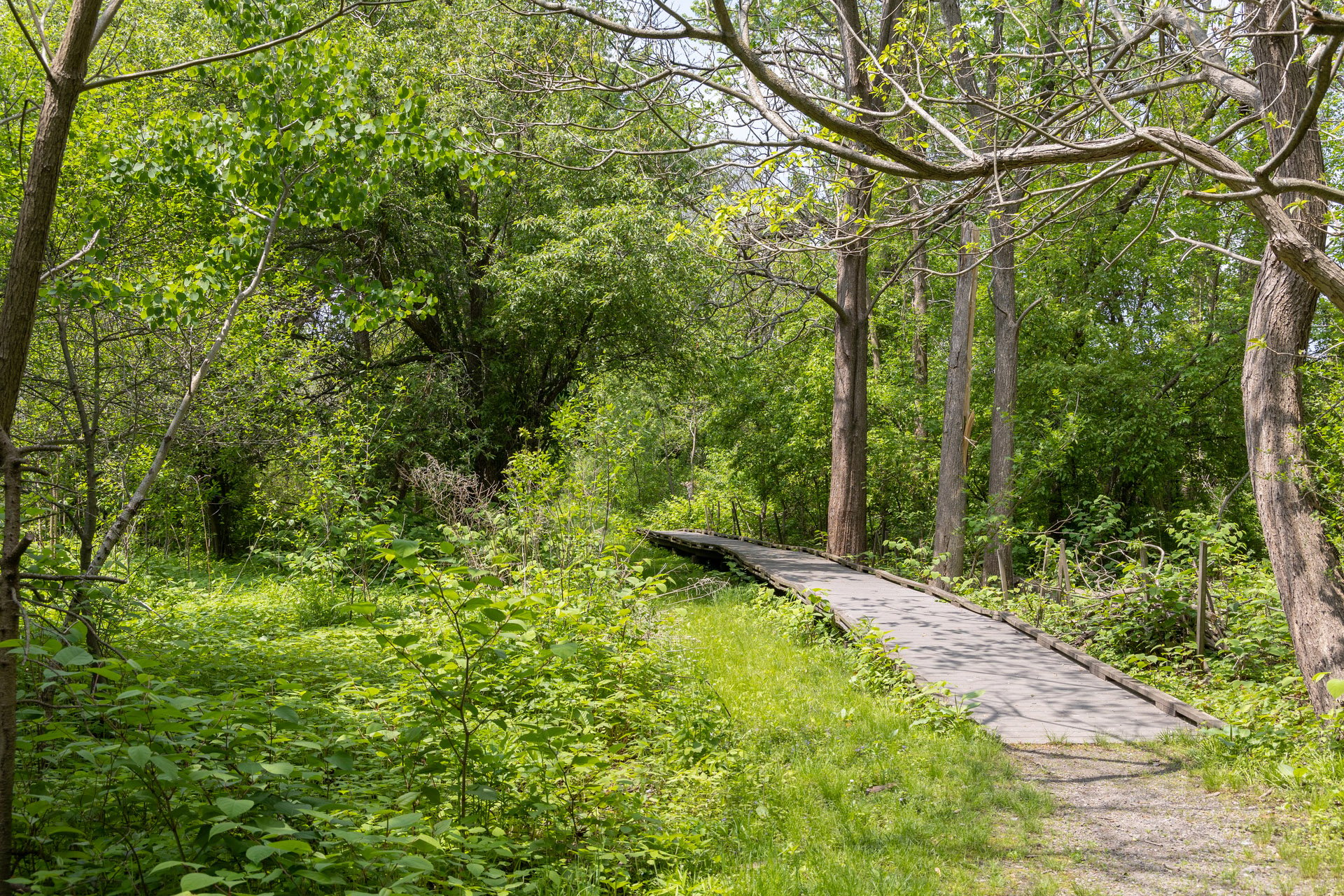BNC Has Reached Net-Zero Carbon Emissions
April 26, 2022
Five months ago, Mass Audubon’s Boston Nature Center (BNC) in Mattapan broke ground on an ambitious project to become carbon neutral by 2022. So, it is especially fitting that on Earth Day Friday, April 22, members of the BNC community, supporters, civic leaders, and Mass Audubon staff gathered at the 67-acre wildlife sanctuary for a ribbon-cutting to officially announce it has achieved net-zero energy status.
Getting to net-zero means BNC will not be emitting more energy than it produces, and thus becoming carbon neutral.
To reach its goal, BNC undertook a multi-faceted program that combined new
solar energy infrastructure and retrofitting of buildings. Rooftop solar panels were added to the sanctuary’s George Robert White Environmental Conservation Center, along with a new ground-mounted array erected nearby.
Three early-20th-century vintage brick cottages—now home to BNC’s state-licensed nature preschool and other educational programs—were converted from natural gas to a more efficient electrical heating infrastructure.
This carbon neutrality success is projected to eliminate the emissions of more than 136,000 pounds of heat-trapping carbon dioxide annually.
The $600,000 project was spurred by $100,000 in crucial commitments from the City of Boston’s George Robert White Fund, Tern Foundation's TernSOLAR challenge grant program, and several generous individual donors.
“We are thrilled that Boston Nature Center is now completely powered by clean, carbon-free energy, another significant milestone for the sanctuary, which already is home to the city’s first “green” municipal building, our George Robert White Environmental Conservation Center,” Mass Audubon Boston Regional Director Julie Brandlen said.
“This project not only affirms Mass Audubon’s commitment to addressing climate change as a priority of our five-year Action Agenda, but we also hope it inspires others to take meaningful climate actions in their cities and towns, neighborhoods and homes,” Brandlen added.
She noted that for more than two decades the sanctuary has been an exemplar of urban access to nature, citing the importance of partnerships with local groups and governments to help ensure it continues to serve as an effective and engaging community resource.
Attaining carbon neutrality at BNC further validates Mass Audubon’s commitment to achieve net-zero status at each of its wildlife sanctuaries throughout the state.
The conservation organization is also advocating for government funding to help ensure the entire Commonwealth can become carbon neutral, as well as for broader state and federal investment in land protection as safeguard against climate change, especially in Environmental Justice communities such as Mattapan.



